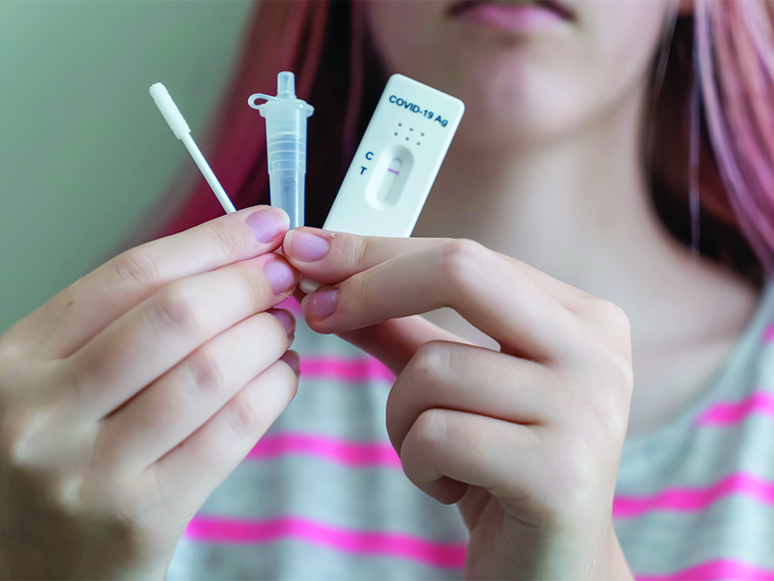logo


11th Apr, 2023

It’s FBT time again, and for the 2022–2023 FBT year it’s important to remember that your business may be able to get an exemption for certain eligible electric vehicles made available for the private use of your employees.
To meet the conditions for exemption, the car must be either a battery electric vehicle, a hydrogen fuel cell electric vehicle or a plug-in hybrid electric vehicle used for the first time on or after 1 July 2022, even if it was held (owned or leased) before that date, and must be valued under the luxury car tax (LCT) threshold for fuel efficient cars.
For FBT purposes, motorcycles and scooters are not considered to be cars and therefore would not be eligible for the exemption even if they happened to be electric.
If an electric vehicle meets all of the conditions, car expenses such as registration, insurance, repairs and maintenance, and the fuel/electricity to charge cars, will also be exempt. However, a home charging station is not considered a car expense associated with providing a car fringe benefit, so those costs will not be exempt. Businesses will also need to include the value of any eligible electric cars benefits provided when working out whether an employee has a reportable fringe benefits amount.
11th Mar, 2023

Employers that have provided FBT car parking benefits for the 2022–2023 FBT year should be aware that the ATO has finalised the changes to its ruling on car fringe benefits – specifically on the concept of primary place of “employment”. A broad test of primary place of employment now applies. Considerations of whether a place is an employee’s primary place of employment may include where their duties are performed, the place at which is primary to the employee’s conditions of employment.
Determining the primary place of employment for FBT car parking purposes is important because, among other things, benefits are only fringe benefits taxable where a car is used by an employee to travel between home and their primary place of employment and is then parked at or in the vicinity of that primary place of employment.
The ATO is also working on a new area: a guideline for calculating electricity costs for FBT purposes when charging an employer-provided electric vehicle (EV) at an employee’s home. This is expected to be released sometime in March.
For an eligible EV that is exempt from FBT, car expenses such as registration, insurance, repairs/maintenance and fuel (including electricity to charge and run electric cars) are also exempt. However, providing a home charging station is not a car expense associated with providing a car fringe benefit, and may be a property or an expense payment fringe benefit.
11th Mar, 2023

As a part of its ever-tightening compliance net, the ATO has recently announced it is targeting specific tax avoidance behaviour in the not-for-profits sector.
The first area of focus is private foundations used to operate businesses or income-producing activities on which no tax is paid. This type of tax-avoidance scheme using not-for-profit foundations first surfaced in the 2015–2016 income year. The basic premise is that an adviser or promoter helps individuals to set up a “private foundation” which is claimed to be exempt from all taxes. The “private foundation” is then used by individuals to operate businesses or for income-producing activities. Unlike genuine not-for-profit foundations, individuals stream their untaxed employment, contractor or business income through their sham foundations, pay no tax on the income and use the funds for their own benefit. In some cases, a small portion of the income made may be paid to humanitarian or social causes, such as through charities, which is used as justification for the foundation’s purported tax-free status. The ATO is taking this matter seriously and has already commenced investigations of potential promoters.
The second area of focus is registered public benevolent institutions (PBIs) using schemes to avoid or reduce FBT. The ATO is concerned with arrangements where employees of PBIs are used to undertake charitable or commercial work activities of other entities that are not themselves benevolent in nature. The ATO will be reviewing these arrangements to determine if any have the sole and dominant purpose of avoiding or reducing FBT.
19th Dec, 2022

Yes, it’s that time of year again! As the so-called “silly season” gets underway, and with many employers reverting to pre-pandemic norms around meal entertainment, it is the perfect time to consider what benefits your business is going to provide to staff and how, with a little planning, employers might be able to avoid an FBT hangover.
During this time of the year, in addition to the typical end-of-year party, we generally see a marked increase in expenditure across meal and recreational entertainment, as well as gifts.
Employers must choose how they calculate their FBT meal entertainment liability. Most use either the “50/50” method or the “actual” method.
Using the “50/50” method
Rather than apportioning meal entertainment expenditure based on the proportion received by employees (and their associates) and non-employees (who aren’t associates of employees) and by reference to where food and drink is actually consumed under the actual method, many employers choose to use the simpler “50/50” method. Under this method, irrespective of where the meal entertainment occurs or who attends, 50% of the total expenditure is subject to FBT and 50% is deductible for income tax purposes.
Using the “actual” method
Under the “actual” method, only the entertainment provided to employees and their associates is subject to FBT. In addition, where food and drink are consumed by employees on the employer’s premises, there will be no FBT due to the property exemption -– this takes care of Friday night drinks in the office! But usually, the greatest reduction in FBT when using the actual method will come from the “minor benefits” exemption. Outside of a handful of exceptions, where a benefit with a notional taxable value of less than $300 (including GST) is provided to an employee or an associate, the minor benefits exemption will generally apply to exempt the benefit from FBT.
Usually, employers would save a considerable amount of FBT using the “actual” method; however, they usually don’t have the time to determine precisely who received the benefit in order to apply the exemption.
A common trap is where an employer has an employee who is considered a “frequent entertainer” for meal entertainment purposes and then is automatically considered a frequent entertainer for recreational entertainment, such that the minor benefits exemption doesn’t apply.
Accordingly, we recommend reassessing which employees should be eligible for the minor benefits exemption with respect to recreational entertainment.
Gifts provided to employees, or their associates, will typically constitute a property fringe benefit and therefore be subject to FBT unless the minor benefits exemption applies.
Gifts, and indeed all benefits associated with the end-of-year function, should be considered separately to the party itself in light of the minor benefits exemption.
For example, the cost of gifts such as vouchers, bottles of wine or hampers given at the function should be looked at separately to determine if the minor benefits exemption applies.
Gifts provided to clients are outside of the FBT rules, but may be deductible if they are being made for the purposes of producing future assessable income.
19th Dec, 2022

Businesses that provide FBT car parking benefits should be aware that the ATO has recently released an updated consolidated draft taxation ruling that incorporates proposed changes to FBT car parking benefits. Broadly, the ATO is saying that for FBT purposes from 1 April 2022, it will consider the “primary place of employment” as a broad test that isn’t limited to the specific place at which an employee’s duties are performed on any one day.
Relevant considerations will include the employee’s conditions of employment, such as rostering, allowances and car parking, as contained in their employment contract or industrial instrument.
This follows the decision in Commissioner of Taxation v Virgin Australia Regional Airlines Pty Ltd, where the Full Federal Court looked at the concept of “primary place of employment” and ultimately found that Virgin Airlines provided FBT car parking benefits to its flight and cabin crew in various airports.
The Virgin employees parked at (or near) a “home base” airport and undertook travel as part of their work, including staying overnight at other locations, while their home base car parking continued.
Virgin originally argued successfully in the Federal Court that the employees were carrying out their duties in many different places (on planes and in other airports) from where the parking occurred, so the parking location shouldn’t be considered the “primary place of employment” and the car parking shouldn’t be considered a Virgin-provided benefit subject to FBT.
The ATO appealed to the Full Federal Court, which in the end concluded that a Virgin employee’s relevant home base airport was their “primary place of employment”, even on days when the employee didn’t attend or work at the home base airport at all, for example because they were working on flights or had a rest period in another location. The car parking was therefore an employer-provided FBT benefit because the employees’ cars were parked at, or in the vicinity of, their primary place of employment.
01st May, 2022

FBT is generally seen as a relatively slow-moving and quiet area of tax law. But Budget day this year saw some movement at the FBT station, specifically regarding COVID-19 tests provided to staff, and also car parking benefits.
The 2022–2023 Federal Budget included a measure, now passed into law, to make costs for taking a COVID-19 test to attend their workplace tax-deductible for individuals from 1 July 2021.
COVID-19 tests, including rapid antigen tests (RATs), provided by employers to employees are considered benefits under the FBT regime.
However, by allowing for an individual tax deduction, the new measure also allows for the operation of the “otherwise deductible” rule to reduce the taxable value of the benefit to zero. The result? By introducing a specific individual income tax deduction, employers would also not have to pay FBT.
Neat solution. Well, apart from the catch: employeelevel declarations could be required when the provision of a RAT is a property fringe benefit (that is, legal ownership of the item passes from the employer to the employee).
Where a RAT is provided as an expense reimbursement or residual benefit, an employer-level declaration is available (that is, one declaration signed by the public officer on behalf of each employing entity lodging an FBT return to declare that there is no private use).
In case collecting hundreds or thousands of employeelevel paper declarations is not how you’d like to spend
your time, we see three options at this stage:
As a reminder:
The scope of the term “commercial parking station” is therefore fundamental to determining if an employer has taxable car parking benefits.
Broadly, a commercial parking station is one where car parking spaces are, for payment of a fee, available in the ordinary course of business to members of the public for all-day parking.
The ATO issued a ruling in 2021 that no longer applied the interpretation that car parking facilities with a purpose other than providing all-day parking (usually charging significantly higher rates) are not commercial parking stations. This was to apply from 1 April 2022.
In effect, this would bring facilities like shopping centre car parks and hospital car parks into the definition of a “commercial parking station”. For employers with only that type of parking within a one-kilometre radius, the consequences were significant, potentially bringing previously non-taxable employer-provided car parking within the scope of FBT.
The Federal Government has announced it will be undertaking consultation with the intent of restoring the previously understood application of FBT to car parking fringe benefits, which is closer to the original policy intent of the car parking FBT provisions. The readjusted definition would then apply from 1 April 2022 instead.